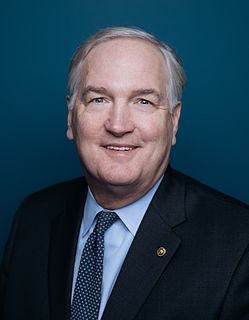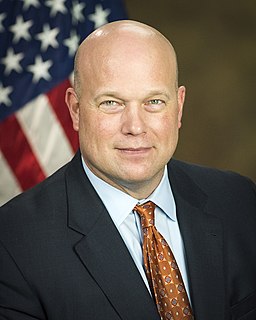A Quote by Susan Collins
I think judges have to have the ability to put aside their personal views and rule on the facts of the case with fidelity to the law and the Constitution.
Related Quotes
I'm a common law judge. I believe in deciding every case on its facts, not on a legal philosophy. And I believe in deciding each case in the most limited way possible, because common law judges have a firm belief that the best development of the law is the one that lets society show you the next step, and that next step is in the new facts that each case presents.
Ironically enough, if the case involves race, and one claims that race is a disqualifying factor, nobody could hear the case. Everybody comes to these cases with some preconceptions, and the premise of our judicial system is that judges by training and by ethical codes are obligated to set those prejudices aside and to decide on the facts and the law. And to claim that somebody can't simply because of their racial identity is deeply offensive.
Much of the Constitution is remarkably simple and straightforward - certainly as compared to the convoluted reasoning of judges and law professors discussing what is called 'Constitutional law,' much of which has no basis in that document....The real question [for judicial nominees] is whether that nominee will follow the law or succumb to the lure of 'a living constitution,' 'evolving standards' and other lofty words meaning judicial power to reshape the law to suit their own personal preferences.
People must be confident that a judge's decisions are determined by the law and only the law. He must be faithful to the Constitution and statutes passed by Congress. Fidelity to the Constitution and the law has been the cornerstone of my life and the hallmark of the kind of judge I have tried to be.
Conservatives . . . may decide to join the game and seek activist judges with conservative views. Should that come to pass, those who have tempted the courts to political judging will have gained nothing for themselves but will have destroyed a great and essential institution. . . . There are only two sides. Either the Constitution and statutes are law, which means their principles are known and control judges, or they are malleable texts that judges may rewrite to see that particular groups or political causes win.
The public welfare demands that constitutional cases must be decided according to the terms of the Constitution itself, and not according to judges views of fairness, reasonableness, or justice. I have no fear of constitutional amendments properly adopted, but I do fear the rewriting of the Constitution by judges under the guise of interpretation.
In its proper meaning equality before the law means the right to participate in the making of the laws by which one is governed, a constitution which guarantees democratic rights to all sections of the population, the right to approach the court for protection or relief in the case of the violation of rights guaranteed in the constitution, and the right to take part in the administration of justice as judges, magistrates, attorneys-general, law advisers and similar positions.
I think it's a typical hidden agenda of the Liberal party... They had the courts do it for them, they put the judges in they wanted, then they failed to appeal -- failed to fight the case in court... I think the federal government deliberately lost this case in court and got the change to the law done through the back door.
Our constitution should be inspired by the philosophy of the Koran with principles that are set in stone and not open to the whims of individual judges, as is the case now. In particular, the constitution should protect every citizen's basic human rights regardless of their sex, status or sect. Everyone should be equal before the law.


































